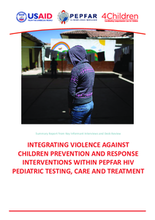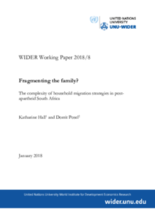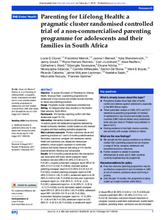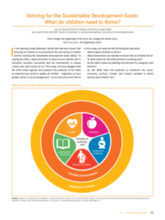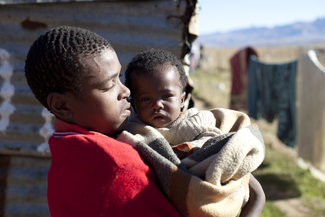

Displaying 241 - 250 of 576
This research provides insight into the current intervention strategies used by social workers in emergency child protection, whereby children are removed from their caregivers as a result of abuse and are placed at child and youth care centres.
This paper from the journal of Social Work/Maatskaplike Werk discusses the experiences of parents receiving family reunification services because their children have been placed in child and youth care centres in South Africa.
This study aims to develop a model for practice for implementing emergency child protection interventions with children at risk.
This brief reference surveys the national policy of three representative African countries on the legal guardianship of children who are without parents or families.
This report presents the preliminary findings from an ongoing project undertaken by 4Children that seeks to identify key opportunities to incorporate violence prevention and response interventions within priority PEPFAR Program Areas at clinical and community levels.
This article examines the care experiences of former looked‐after children from a residential care setting in South Africa.
In this mixed methods study, the authors use nationally representative panel data to investigate migration patterns when viewed from the perspective of children.
The focus of this study is to explore the role of lay health workers in a community organization providing palliative care to orphans and vulnerable children affected by HIV/AIDS, located in rural Bronkhorstspruit, Gauteng Province of South Africa.
The aim of this study was to assess the impact of ‘Parenting for Lifelong Health: Sinovuyo Teen’, a parenting programme for adolescents in low-income and middle-income countries, on abuse and parenting practices.
This essay critically engages with the 2030 Global Agenda and assesses the potential of the SDGs to transform our world to enable all children – regardless of race, gender, ability, or social background – to not only survive but thrive.



